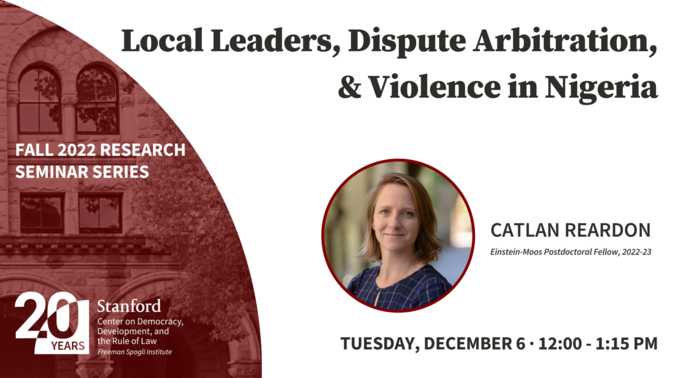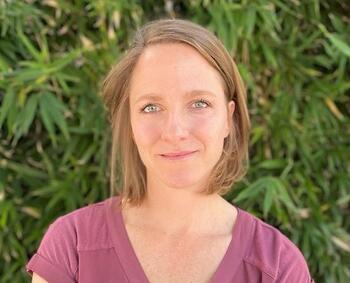Local Leaders, Dispute Arbitration, & Violence in Nigeria
Local Leaders, Dispute Arbitration, & Violence in Nigeria
Tuesday, December 6, 202212:00 PM - 1:15 PM (Pacific)
Virtual to Public. Only those with an active Stanford ID with access to E008 in Encina Hall may attend in person.

Communal violence remains an enduring experience across many multi-ethnic societies. In these diverse communities, small-scale clashes can quickly escalate into severe cycles of violence. While tensions within these communities are nearly ubiquitous, the outbreak of violence is not. What accounts for these pockets of peace within conflict zones? I argue that violent outbreaks depend on the efficacy of local leaders—and citizen responses—in dispute resolution, which are shaped by the strength of ties leaders possess both within (bonding capital) and across (bridging capital) communities.
To examine my core theoretical predictions, I conducted a randomized controlled trial and surveys with local leaders and citizens across 88 communities in Nigeria. I find that leaders with cross-group ties perceive outgroup leaders with more credibility, report more successful dispute resolution and, ultimately, fewer violent events. In addition, I find that the residents who live under more bridged leaders are more likely to comply with decisions and report improved security.
ABOUT THE SPEAKER

Virtual to Public. Only those with an active Stanford ID with access to E008 in Encina Hall may attend in person.
